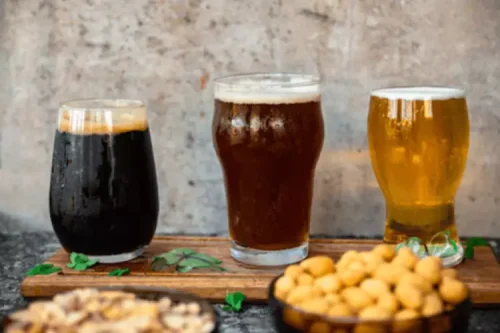
It’s important to understand that quitting drinking without changing lifestyle, dry drunk syndrome behaviors, and thought processes aren’t enough. People become addicted because they started drinking as a way to deal with a problem. It’s critical to realize that quitting drinking won’t be effective unless lifestyle, behavior, and mental patterns are altered. People who started drinking to cope with a problem eventually developed an addiction to it. Moreover, post-acute withdrawal symptoms (PAWS) caused by dry drunk syndrome may linger much longer than expected.
- A person dealing with side effects of PAWS actually may look like he’s intoxicated even though he’s been totally abstinent (which explains where the term «dry drunk» may come from).
- These people exhibit behaviors similar to the problematic behaviors they displayed while drinking.
- If prolonged alcohol abstinence with opiate PAWS are compared, it has to be said that opiates are more unambiguously linked with protracted signs of abstinence (in 90% of all cases).
What Are the Symptoms of Dry Drunk Syndrome?
Emotional resilience is the ability to adapt to stressful situations and cope with life’s challenges. Building resilience can involve therapy, mindfulness practices, and developing a strong support network. https://ecosoberhouse.com/ Establishing clear, achievable goals for your recovery can help you stay focused and motivated. Whether it’s attending a certain number of support meetings each month or engaging in a new hobby, having goals can provide direction and purpose in your recovery journey. Finding constructive ways to cope with stress and emotional pain is critical.
- Addressing these challenges requires comprehensive treatment that focuses on addressing underlying psychological, emotional, and social factors contributing to dry drunk syndrome.
- In group therapy, individuals in recovery can learn from and find inspiration from the experiences and progress of others.
- If they have already completed treatment, there are still positive steps you can take.
- Cognitive Behavioral Therapy has become a common and reliable treatment for alcoholism and extended substance addiction.
- With hard work and dedication, it is possible for those struggling with the dry drunk syndrome to find lasting recovery from alcoholism and substance abuse.
- Alcohol used to provide temporary relief from such feelings, but you can’t rely on that anymore.
- In fact, an estimated 75 percent of individuals in recovery from alcohol addiction may experience the condition at some point, according to the UCLA Semel Institute for Neuroscience and Human Behavior.
Contents

This could lead to an exaggerated sense of self-importance, as you believe you’re owed praise. Treatment can help you feel proud of your sobriety without the praise of others, which could prevent this symptom of dry drunk syndrome. Hiding alcohol use and addiction usually requires lying, which can be a hard habit to break for those with dry drunk syndrome.

Preventing Relapse: A Proactive Approach

When the alcohol is pulled away, it is only logical that things will get worse before they get better. If you are concerned that your loved one may be struggling with dry drunk syndrome, consider the level of stress they are currently experiencing. Can you take any proactive steps to reduce their stress level or recommend any steps they can take on their own? Lowering stress is an important step towards dealing with dry drunk behaviors.
- If you’re a treatment provider and have a question, please reach out and someone from our Customer Success team will be in touch with you shortly.
- When a person experiences dry drunk behavior patterns, the way to get back on track is to do what is supposed to be done.
- Abstinence will also help people begin their recovery from liver damage.
- PAWS can occur after someone stops taking a substance, and it involves a variety of mood and psychological-related symptoms.
Coping With Dry Drunk Syndrome
The inability to cope with stress, resorting alcoholism to dishonesty, or seeking instant gratification are all examples of behaviors that may persist. Understanding the triggers of this syndrome is essential for those in recovery and their support networks. In this article, we delve deep into the triggers of dry drunk syndrome and how to navigate them. Recovery from alcohol addiction is a multifaceted process that extends beyond physical abstinence.
- Nova Recovery Center tailors individualized treatment which includes Cognitive Behavioral Therapy.
- Conflict with loved ones, feeling misunderstood, or a lack of support can all contribute to the onset of dry drunk syndrome.
- A luxury center treating addiction and co-occurring mental health with evidence-based therapies, a continuum of care in bespoke facilities, and private bedrooms.
- Living with dry drunk syndrome can be incredibly difficult for both the person struggling with it and their family.
- While you may have physically removed alcohol from your life, the emotional and psychological aspects of your addiction may remain unaddressed.
- These signs may vary in severity and duration from person to person, and individuals with dry drunk syndrome may not necessarily exhibit all of them.
- The 12-step recovery community’s early circles are where the colloquial term “dry drunk syndrome” first appeared.

A person might start to suffer from a low stress tolerance or behave impulsively, repeatedly engaging in unhealthy or dangerous behaviors. One might even start dreaming about alcohol or getting nostalgic about the “good old” drinking days. Such an attitude may become constantly negative, and the person will lose interest in previously cherished activities and become occupied with negative thoughts or self-pity. It may be hard for them to recognize that anything needs to be changed. Dry drunk syndrome operates almost exclusively within a person’s mind. In fact, psychologists since 1955 have maintained that working on one’s “inner life” is the key to overcoming the dry drunk mentality.
